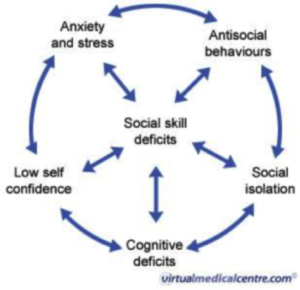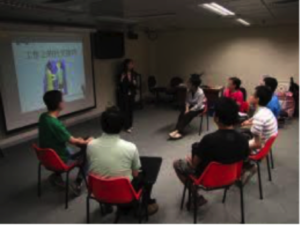INTRODUCTION
In some cases, the worst effects of psychological and mental disorders are the effects on social aspects of life. Humans are social creatures and thrive on interactions with others. Without this, depression and isolation are inevitable, leading to worse consequences for one’s mental health.
WHAT ARE SOCIAL SKILLS?
Social skills are verbal and non-verbal behaviour, which we use to communicate effectively with others. Social skills comprise a person’s culture, beliefs and attitudes. Someone who uses social skills to interact effectively with friends, family, colleagues and strangers is said to have social efficiencies.
SOME EXAMPLES OF SOCIAL SKILLS:
- Eye contact with others in a conversation
- Smile when meeting people
- Shake hands when meeting someone
- Use the correct tone and the appropriate sound
- Express opinions to others
- The impression of how others feel and show empathy
- Appropriate emotional response (eg cry when something sad happens; laugh when someone says something funny)
WHO CAN BENEFIT FROM THE SST HANDLED BY OCCUPATIONAL THERAPISTS?
SST is used for individuals who are diagnosed with certain mental or psychological disorders and whose symptoms involve interrupted social function. However, anyone who wants to improve their social skills and social confidence can benefit from this therapy.
MAIN DISORDERS RELATED TO SOCIAL DYSFUNCTIONS ARE:
- Autism
- Schizophrenia
- (Social anxiety disorder) or social phobia
It is important to remember that, although SST can be very effective in helping people to learn the skills needed, there are some basic reasons why people suffer from these social difficulties which also need to be treated, either with medication or psychotherapy treatments.
The below diagram will help to explain this. Arrows represent signs that negatively affect each other:

SST FOR TEENS AND ADULTS
SCHIZOPHRENIA
- One of the core deficits of schizophrenia is cognitive impairment, including work memories, problem solving and attention. Along with psychotic symptoms, this makes many patients with schizophrenia have problems to socialise especially in the community. Therefore, highly structured training needs to be arranged to treat patients. Each skill is broken down into smaller sections to make it easier for the patient to remember and obtain an extension.
The social skills program for schizophrenic patients is based on their negative or affective symptoms. General social skills focus on:
- Eye contact: very important during conversation or discussion because if eye contact is absent during this conversation it indicates that the patient does not focus and gives attention.
- Smiling: People with schizophrenia tend to have levelled emotional and facial reactions due to their side effects. Learning how to smile easily can make all the difference.
- Demonstrate appropriate emotional response: Negative symptoms of schizophrenia are giving inappropriate answers in social situations (e.g. laughing when others are serious and vice versa). SST aims to train schizophrenic patients to recognize when laughter is appropriate and when they need to be serious.
- Maintaining a conversation: Knowing how to ask and answer questions, give and receive praise.
- Listening: In an effort to respond to others it is important to listen effectively. SST teaches how to actively listen to others.

MOHD BAKRI MAT HUSSIN, OCCUPATIONAL THERAPIST,UMMC
This article was translated from https://www.mmgazette.com/latihan-kemahiran-sosial-social-skill-training-mohd-bakri-mat-hussin/by Nurul Aini Ahmad.
[This article belongs to The Malaysian Medical Gazette. Any republication (online or offline) without written permission from The Malaysian Medical Gazette is prohibited.]
